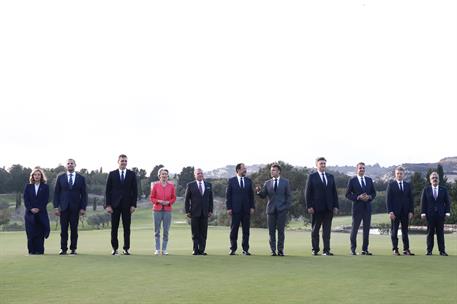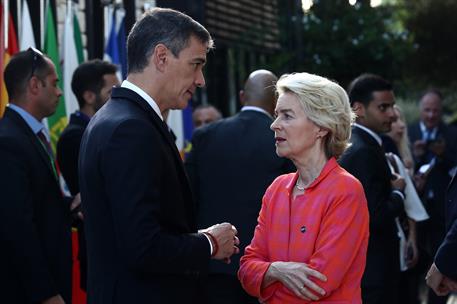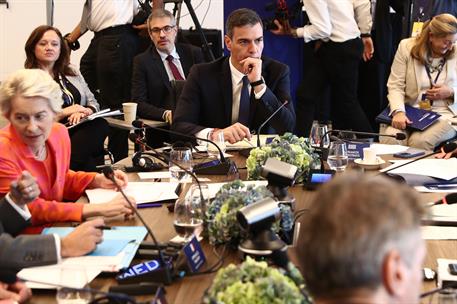Pedro Sánchez argues that the EU must play an active role for peace in the Middle East conflict
President's News - 2024.10.11
Summit working sessions | Pool Moncloa / Jorge Villar - 2024.10.11
Paphos (Cyprus)
The President of the Government of Spain, Pedro Sánchez, travelled to Cyprus today to take part in the MED9 Summit.
He highlighted the importance of the MED9, which brings together the heads of state and government of Spain, Portugal, France, Italy, Greece, Malta, Cyprus, Slovenia and Croatia, and the President of the European Commission.
During the meeting, the leaders discussed strategic issues for the region, such as competitiveness, energy interconnections and strategic partnerships between countries. In this regard, MED9 members highlighted the value of the creation of a Commission for the Mediterranean, which strengthens the region's capacity to address these issues.
They also discussed migration, a major challenge for all nine countries. On this issue, the President of the Government set out Spain's position, which will continue to promote a solvent, orderly and efficient migration policy that is also one of solidarity and humanity.
The summit was also attended by King Abdullah II of Jordan, who was invited to address the situation in the Middle East, one of the central themes of the day.
The president referred to the serious situation in the Middle East, reiterating his categorical condemnation of what happened at the UNIFIL headquarters, where Israeli troops shot at and wounded two Blue Helmets. "This is unacceptable," he stressed.
The leaders of Spain, France and Italy subsequently signed a joint communiqué to express their outrage following the attack, and to reiterate their call for an immediate ceasefire and the full implementation of UN Security Council Resolution 1701. The three leaders also recalled that all Blue Helmets must be protected and reiterated the continued and indispensable commitment of UNIFIL troops in this challenging context.
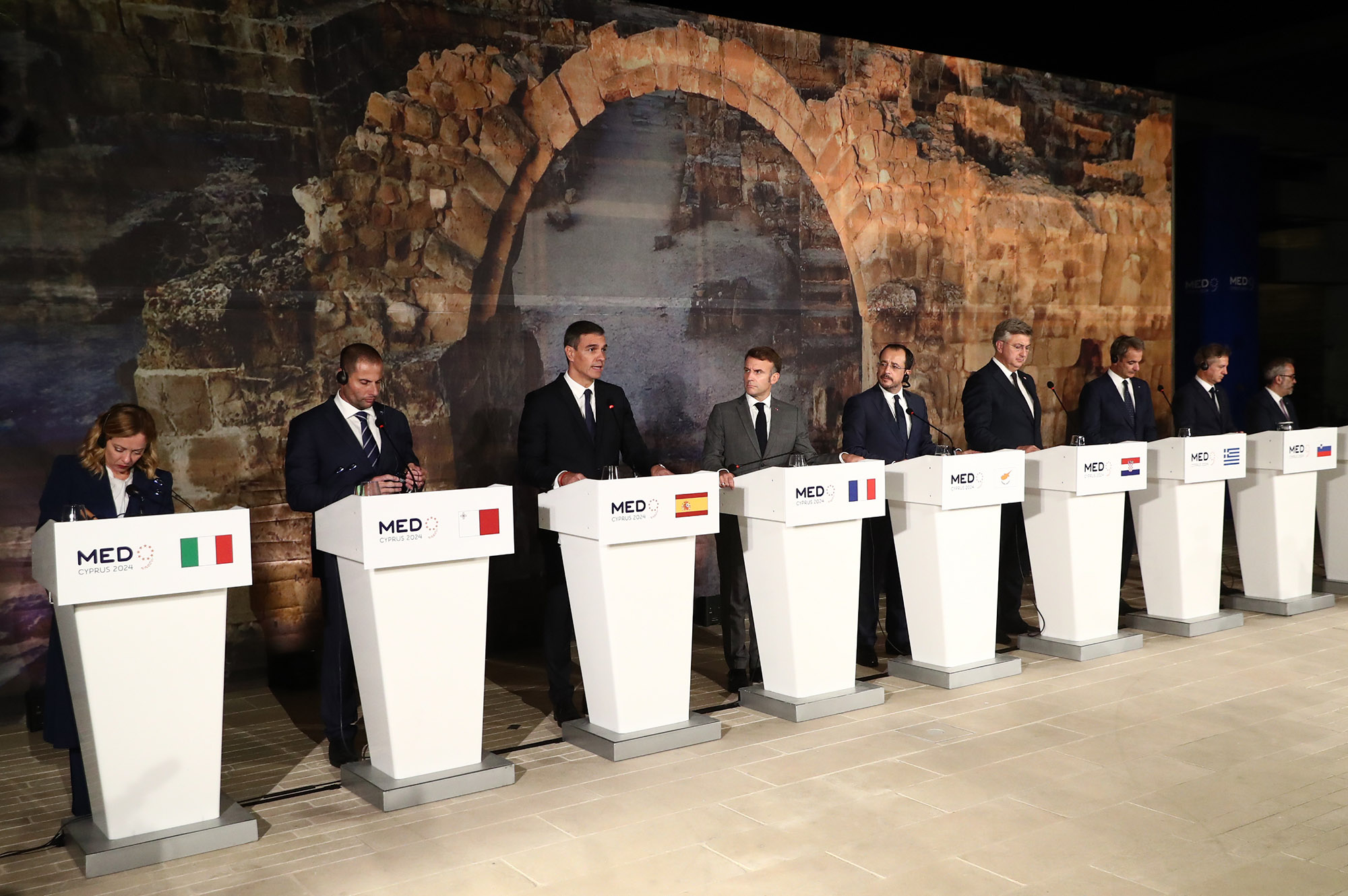 Joint statement by the leaders of the EU-MED9 Summit to the media | Pool Moncloa / Fernando Calvo
Joint statement by the leaders of the EU-MED9 Summit to the media | Pool Moncloa / Fernando Calvo
Pedro Sánchez lamented that there are already more than 40,000 victims in Gaza and Lebanon, and nearly two million displaced people in Gaza and almost one million in Lebanon. He also expressed his concern at the silence and inaction of the international community in the face of the grave situation in the Middle East, which has accumulated more than seven decades of instability, wars and forced population displacements.
Pedro Sánchez outlined Spain's clear position on the Middle East conflict in five points. To this effect, he argued that the EU should clearly demand an immediate ceasefire in Gaza and Lebanon, an end to violence in the West Bank and the release of all hostages held by Hamas terrorists. Second, he referred to the increase in humanitarian aid to Palestine and Lebanon.
Pedro Sánchez also called on the international community to suspend arms shipments to Israel, highlighting the fact that Spain has not sold arms to Israel since the beginning of the war. "No weapons, no war," he stressed. Fourth, the president argued that the European Commission should assess whether international law and human rights are being respected, which is the essential content of the EU-Israel Association Agreement. "If it is not respected, there is only one way forward: to revise the agreement," he stressed.
Last, Pedro Sánchez agreed that "the priority is to stop the war", calling for tackling the root causes of the conflict to achieve lasting peace. In this regard, he defended the need to progress towards a political process that restores peace and security to the region by means of the two-state solution and the holding of an international peace conference, which Spain is offering to host. "We will continue to raise our voice in defence of peace and against those who seek to establish a new order based on force," he concluded.
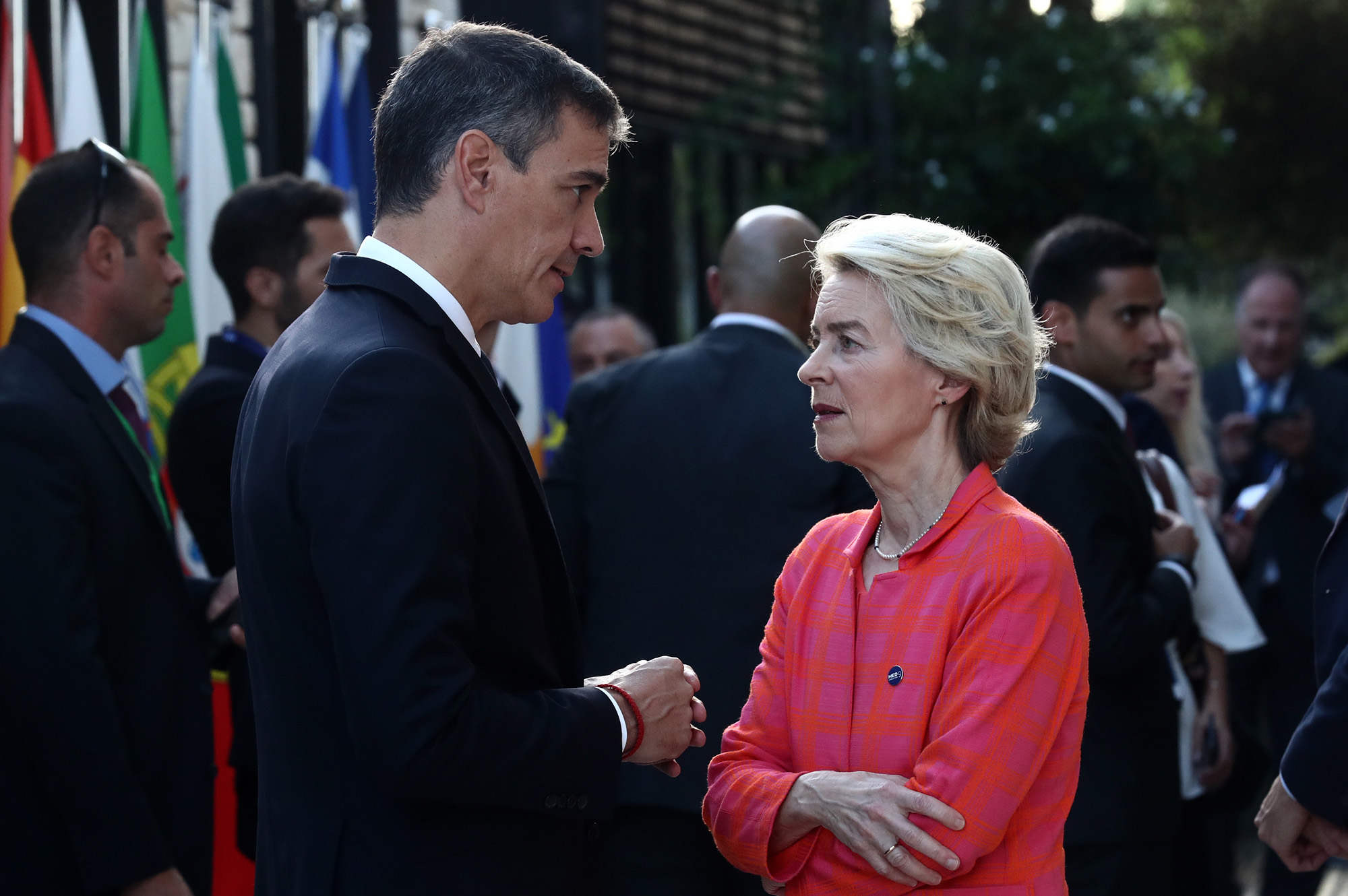 The President of the Government of Spain talks with the President of the European Commission | Pool Moncloa / Fernando Calvo
The President of the Government of Spain talks with the President of the European Commission | Pool Moncloa / Fernando Calvo
During his day in Paphos, the President of the Government held a 'pull aside' with the President of the European Commission, Ursula Von Der Leyen, with whom he discussed the EU's priorities for the next institutional cycle that is beginning.
The two leaders exchanged views on migration. Sánchez conveyed to Von Der Leyen his concern that current discourses on issues such as migration and security are limited.
The President of the Government recalled that he will ask the European Commission to speed up the implementation of the Pact on Migration and Asylum, promoted under the Spanish presidency of the EU last year.
Non official translation
